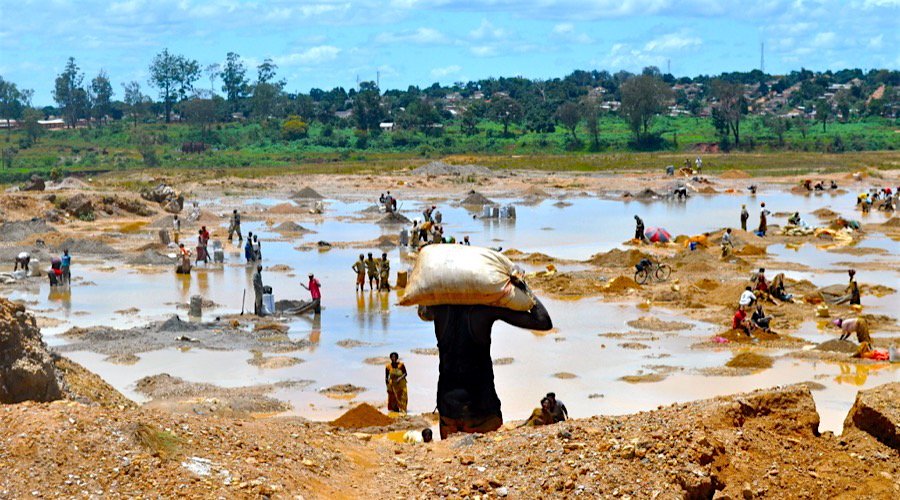
05 Jul Illegal gold trade in Congo still benefiting armed groups, foreign companiesCecilia Jamasmie
International regulations have failed to prevent foreign firms and armed groups from profiting from illegal gold mining in mineral-rich eastern Democratic Republic of Congo, a new report by Global Witness shows.
Illegally acquired and exported gold from the mineral-rich eastern Congo keeps filling the pockets of some foreign companies as well as armed groups.
According to the UK-based organization, which campaigns against natural resource-related conflict and corruption, up to $17 million worth of gold produced by Chinese firm Kun Hou Mining went missing during a 12-month period between 2014 and 2015. The document adds that the metal was very likely to have been “smuggled out of Congo into international supply chains.”
Illegal gold trade has also benefitted Congo-based armed groups, which made as much as $25,000 a month in illegal taxes charged to artisanal diggers and received at least two assault rifles and $4,000 from the company over a two-year period, Global Witness says.
Global regulations in place since the beginning of the decade, such as the Organization for Economic Cooperation and Development guidelines on responsible mineral-supply chains and the U.S. Dodd-Frank Act, have been more successful when it comes to limiting illegal trade of the so-called conflict minerals.
Insurgents and elements of government forces in the DRC control some 65% of the country’s gold mines, which are the foundation for an international smuggling network worth an estimated $400 million a year.
Illicit mining of tin, tantalum, tungsten and coltan, which are key in the production of smart phones and other high tech devices, has been reduced to a minimum, according to another research, conducted by the ENOUGH Project, an anti-genocide campaign group.
They said that while conflict mineral used to provide armed groups with about $185 million a year, by 2014 only one-thirds of those mines were still controlled by warlords. But contraband of gold remains a large source of income for those groups, they warned.
Insurgents and elements of government forces in the DRC control some 65% of the country’s gold mines, which are the foundation for an international smuggling network worth an estimated $400 million a year, the ENOUGH Project said in a February update.
Much of the smuggled gold is sold to buying houses in Dubai, the report notes. In other cases, provincial authorities in South Kivu falsified documents to obscure the link between gold and non-validated mining sites, it says.
According to DRC government statistics, artisanal and small-scale mines (ASMs) produced 548.43 kg of gold last year, but the country’s Chamber of Mines said in February that as much as 400 kilograms of illegal gold leave the South Kivu province alone every month.

